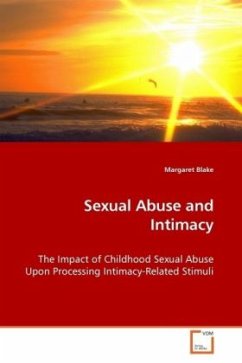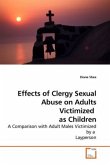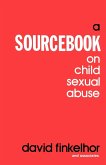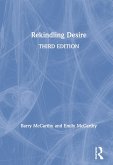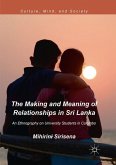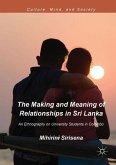Adult survivors of childhood sexual abuse suffer a multitudeof long-term effects, including distorted ideas about sexuality,inappropriate sexualized behaviors, fragmented identity, andfeelings of powerlessness and betrayal (Olafson&Boat, 2000).Victimization influences an individual's self-concept, isassociated with increased use of image-distorting defenses such asdissociation, denial, and projective identification, and increasesthe likelihood of future abuse. The current study sought to explorethe cycle of abuse by examining implicit and explicit measures ofintimacy among female inpatient and university participants. Allparticipants completed a modified version of the Adult DimensionsInventory (Chaffin, Wherry, Newlin, Crutchfield,&Dykman,1997) in an effort to assess experience of childhood sexual abuse,and three versions of the Stroop Task: Neutral, General Threat, andIntimacy-Related. The university participants also completed theExperiences in Close Relationships Scale (ECR; Brennan et al.,1998), a self-report measure of attachment-related anxiety andavoidance. Results showed that a more intrusive form of sexualabuse led to a significant impact upon the cognitive processing ofemotion-laden and neutral stimuli. This impact, however, manifesteddifferently for inpatient and university participants: sexuallyabused inpatient participants tended to avoid processinginformation while abused university participants were distracted byemotion-laden stimuli.Finally, results showed that within theuniversity sample there was a greater discrepancy between implicitand explicit measures of intimacy among sexually abusedparticipants compared to non-abused participants.
Bitte wählen Sie Ihr Anliegen aus.
Rechnungen
Retourenschein anfordern
Bestellstatus
Storno

